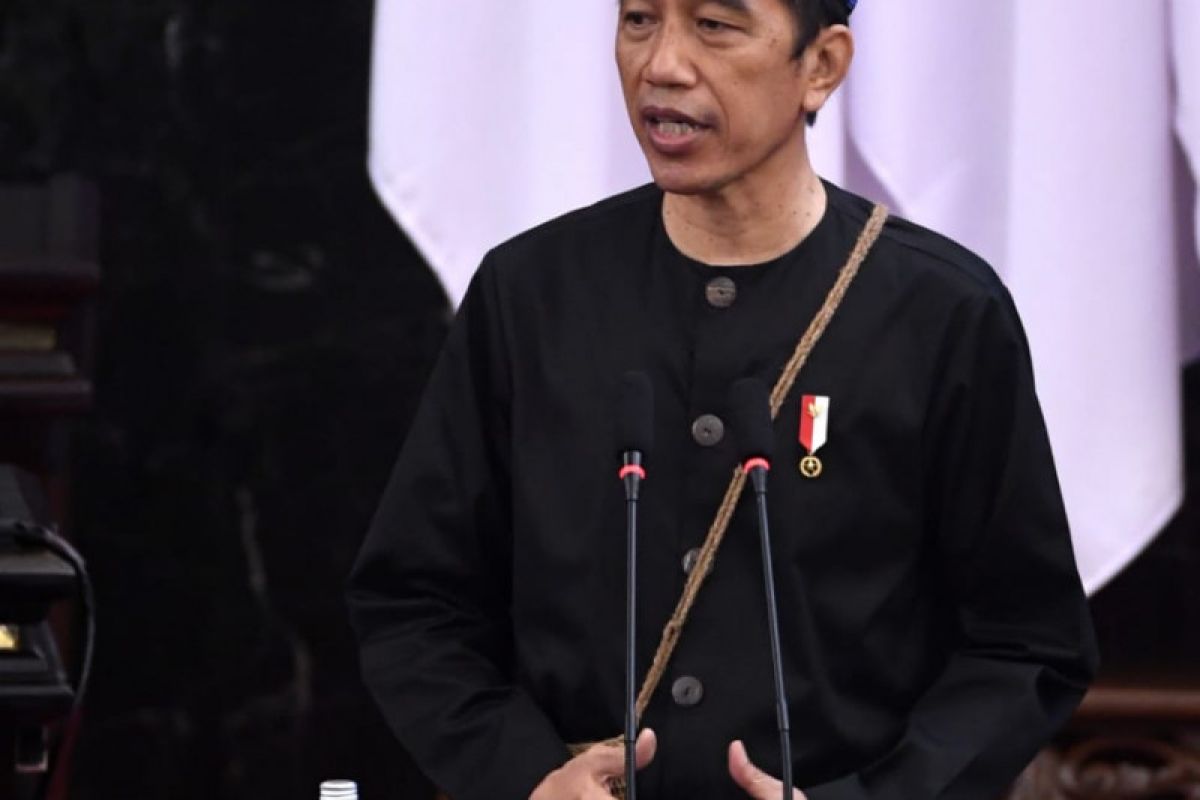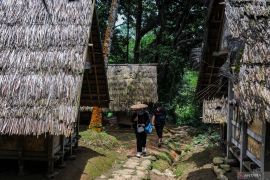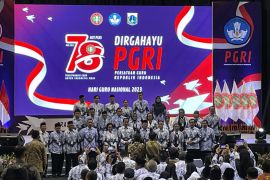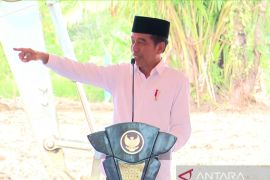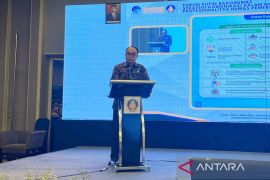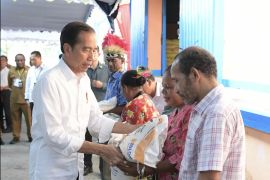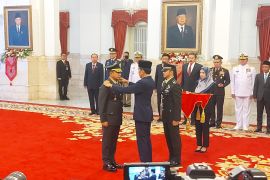The head of state is quite meticulous in picking his attire, as he believes that everything worn should mirror his image of simplicity. For instance, the Baduy tribe’s traditional clothing that he chose to wear while delivering the state speech at the Parliamentary Complex, Jakarta, on August 16, 2021.
Baduy -- also known as "Urang Kanekes" -- is an Indonesian ethnic group living in Banten Province. Their black-colored shirts made of cotton or linen are called "jamang sangsang." The attire also comprises a black headband with blue floral Batik patterns known as "koncer."
Anggit Nugroho, the president's personal secretary, remarked that Jokowi had selected the attire due to its humble and simple design apart from being comfortable to wear.
The head of state also believes that the traditional outfit echoed messages of eco-friendliness, independence, and modesty embodied in the tribe’s local wisdom.
Baduy people are known to be friendly, hardworking, humble, and always in harmony with nature. Their conformity with Earth comprises three basic aspects of life, order, and peace.
Thus, the people strictly lead a healthy lifestyle that has helped to protect them from the pandemic, as no COVID-19 confirmed cases were found among the community members to date, according to the expert from the Indonesian Association of Forensic Psychology Monica Kumalasari.
According to President Jokowi, the messages held relevance to strengthen Indonesia’s struggle in handling the COVID-19 pandemic.
First time
Nugroho recounted the process of choosing the traditional outfit. He had been tasked with readying several clothes from various regions across Indonesia to be worn by the president at the annual Parliamentary session every year.
The head of state would select the attire after careful consideration, with priority accorded to select a region’s clothing that was never chosen before.
Jokowi’s personal secretary remarked that the head of state had especially requested him for simple traditional clothing this year to not give a festive impression on account of the difficult times faced by the people amid the pandemic.
The president’s personal assistant team had readied eight traditional outfits from five regions this year. Jokowi selected two of them to be worn while delivering the state speech and attending the commemoration of Indonesian Independence Day.
After being selected, the traditional clothes were made as per his size. The Baduy attire was specially made for him by the community.
Unique bag
The Baduy traditional outfit worn by the president also had a unique bag called “koja." The traditionally braided bag was made of Artocarpus elasticus tree fiber.
In fact, as per tradition, the president should have also carried a machete – traditionally known as "golok." However, the idea was dropped over safety concerns of the Presidential security guards.
President Jokowi also wore sandals at the state speech, which was considered the first time at the event.
Meanwhile, in 2019, the President Jokowi had reportedly worn slippers while being dressed in traditional attire of the Sasak tribe from West Nusa Tenggara at the annual Parliamentary session and the Balinese one amid the Indonesian Independence Day ceremony.
Deputy Chief of Staff for Human Development of the Presidential Staff Office Abetnego Tarigan remarked that President Jokowi not only lauded the nobility of the traditional values of the Baduy tribe by wearing their traditional outfit but also warded off the stigma against the ethnic group.
The term "Baduy" was given by the outsiders to a sub-Sundanese indigenous group living in the Kanekes Village, Lebak District, Banten. Meanwhile, the community members refer to themselves as "Urang Kanekes" – literally means "people of Kanekes."
However, the term "Baduy" tended to be pejorative due to the Dutch colonial era. The colonists identified the Baduy ethnic group to be the same as the nomadic Badawi tribe that lived in Arabic regions.
Nowadays, the term does not become pejorative anymore, as it has been widely used without any demeaning intention.
The deputy chief also opined that the president's act to promote the local culture at the state event was a good initiative in highlighting the cultural diversity of Indonesia.
Cultural diplomacy
At the end of his speech, President Jokowi expressed his adoration for the traditional outfit which he viewed as being modest, simple, and comfortable to wear.
Furthermore, the head of state also thanked Jaro Saija, the head of the indigenous community, who had specially prepared the traditional attire for him.
The act drew positive response, as several public figures from Banten Province praised the president's choice to wear traditional clothing.
However, was Jokowi keen to win over the hearts of the community or was it also part of his cultural diplomacy for the indigenous people.
The Baduy community is nature-loving, as is apparent from their simplicity and modest colors of their traditional clothing as a reflection of their harmony with Earth.
Thus, several of them are reluctant to be vaccinated. The indigenous people believed that they were able to cure COVID-19 by using their traditional herbs, Saija had told ANTARA on August 20, 2021.
Hence, although their chief has been fully vaccinated, the Baduy people are still unwilling to get vaccinated.
However, if their president manages to convince them by being part of their custom, the existing objections will probably subside.
Conducting cultural diplomacy by wearing traditional clothing might have been forgotten since long. However, it has been revived by Jokowi as a solution in communicating symbols that are often effective.
This approach is believed to be followed for the rest of his period for the next few years. People, who understand his way of thinking and manner of working, will easily comprehend the cultural diplomacy conveyed through the selection of his traditional attire.
Related news: President wears traditional Baduy attire at MPR annual session
Related news: Paramedics persuading indigenous Baduy people to take COVID jabs
Related news: Tightening, relaxing restrictions necessary during pandemic: Jokowi
Translator: Hanni Sofia, Uyu Liman
Editor: Sri Haryati
Copyright © ANTARA 2021
